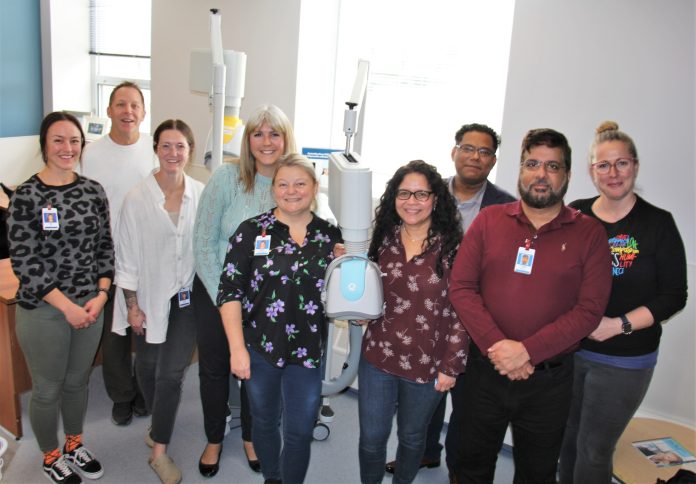
A new treatment is now available in north central Ontario for people with severe depression and other mental illnesses whose conditions have not responded to other medications or therapies.
Waypoint Centre for Mental Health Care, in partnership with Sunnybrook Health Sciences Centre, officially launched a repetitive Transcranial Magnetic Stimulation (rTMS) program today. By introducing this treatment at Waypoint’s Penetanguishene campus, individuals in our region will have access to specialized care closer to home.
“Depression can have a profound impact on individuals, affecting all aspects of their lives,” said Dr. Kevin Young, Vice-President, Medical Affairs, and Chief of Staff. “Partnering with Sunnybrook has accelerated Waypoint’s ability to deliver rTMS as part of a full continuum of treatment options for depression.”
rTMS is an innovative form of brain stimulation. This advanced treatment is administered in a comfortable setting and involves short magnetic pulses that stimulate nerve cells in areas of the brain responsible for regulating thought, emotion and behaviour. It is specifically recommended for individuals suffering from treatment-resistant depression and is a great option when other treatments haven’t worked.
“The need for specialized mental health care is growing. One in five people in Canada will experience a mental health or addiction concern,” said Ru Taggar, Executive Vice-President, Chief Nursing and Health Professions Executive at Sunnybrook. “As one of Ontario’s largest providers of rTMS, we see just how much of a difference this treatment makes for people with medication-resistant mental illness, and we’re proud to partner with Waypoint to make rTMS treatment available to more people closer to home.”
The program is by referral only and began accepting patients in August. It serves both patients who are admitted to the hospital and those who receive care but do not stay overnight. A full course of treatment is administered five times a week for six weeks, and treatments take about five minutes. Patients typically return to their regular activities immediately afterward.







